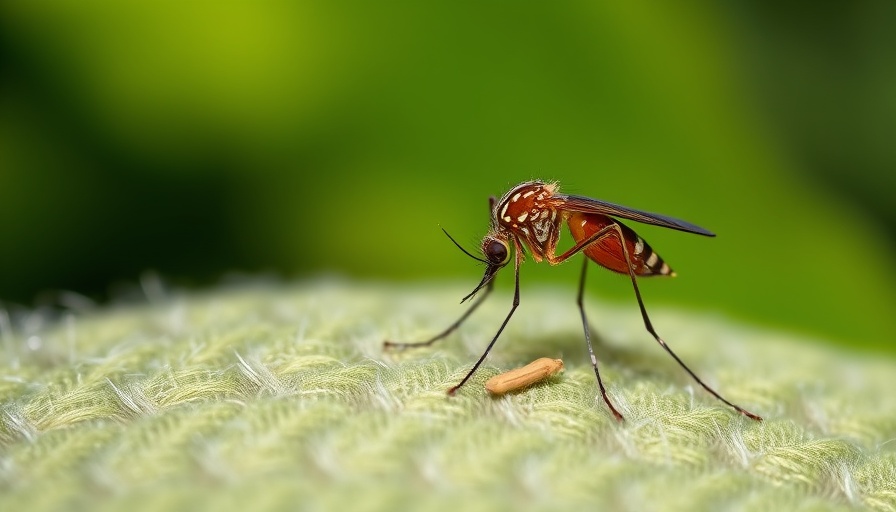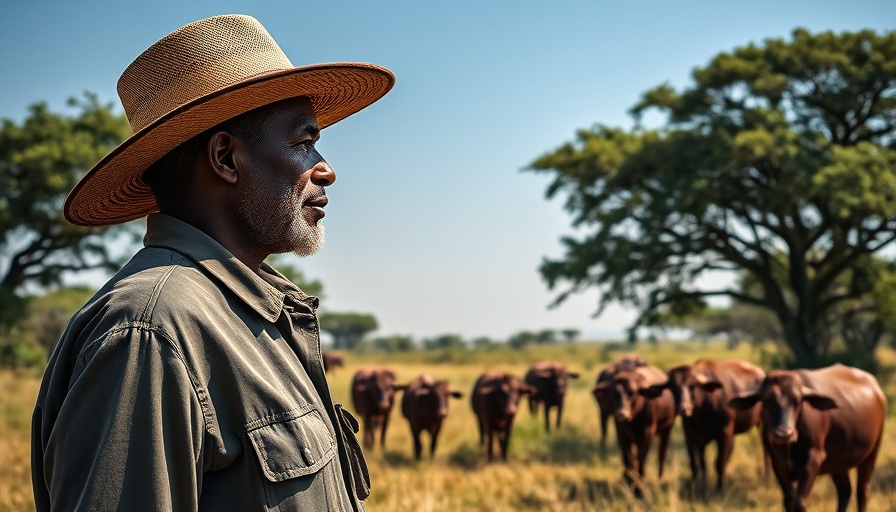
West Nile Virus Cases Surge: A Health Threat Looms Over Utah
As summer heats up, an alarming rise in West Nile Virus cases has emerged near Utah, mainly fueled by climate change. Health officials report that a staggering 169 mosquito pools tested positive for the virus in Las Vegas, just 100 miles from Utah's border—a record high since monitoring began. While most infected individuals only experience mild symptoms, about 1 in 150 may suffer serious complications. With the lack of a vaccine, prevention remains our best defense.
Why Climate Change Makes Mosquitoes Thrive
The breeding season for mosquitoes is now stretching longer than in previous decades, a direct result of rising global temperatures and unpredictable rainfall patterns. Southwestern states like Nevada are witnessing earlier and more intense heatwaves, coupled with erratic moisture levels. This combination creates ideal conditions for mosquito populations to explode. Smaller water bodies, such as Lake Mead, are shrinking, resulting in stagnant pools that serve as perfect breeding ground for these pests.
The Recorded Impact of West Nile Virus
The first West Nile case in Las Vegas was documented back in 2004. Fast forward to 2019, and we reported 43 cases—a concerning trend indicating that outbreaks are becoming more frequent and severe. With changing climate patterns, experts warn that this summer could result in even greater spikes in cases, posing an increasing risk to public health.
Implications for Community and Wildlife
This surge in mosquito populations and the subsequent rise of illnesses like West Nile Virus highlight what is at stake for our communities and wildlife alike. The ongoing degradation of ecosystems and the burning of fossil fuels not only harm our planet but also threaten human health. Rethinking our environmental choices becomes crucial—promoting initiatives such as rewilding and opting for plant-based diets can significantly contribute to the health of our ecosystems.
What Can You Do?
Being aware and taking action can make a difference. Support local conservation initiatives and educate yourself about the importance of biodiversity. Small changes in your habits can lead to big improvements for both wildlife and human health. Together, we can mitigate the impacts of climate change and protect our ecosystems.
Conclusion: Take Action
The rise in West Nile Virus cases serves as a wake-up call. It is a reminder of how closely interconnected our health is with the health of our planet. We must act now—whether it's through supporting wildlife conservation, reducing pollution, or advocating for climate action. Your efforts can contribute to a healthier environment, one that nurtures both people and wildlife.
 Add Row
Add Row  Add
Add 




 Add Row
Add Row  Add
Add 

Write A Comment